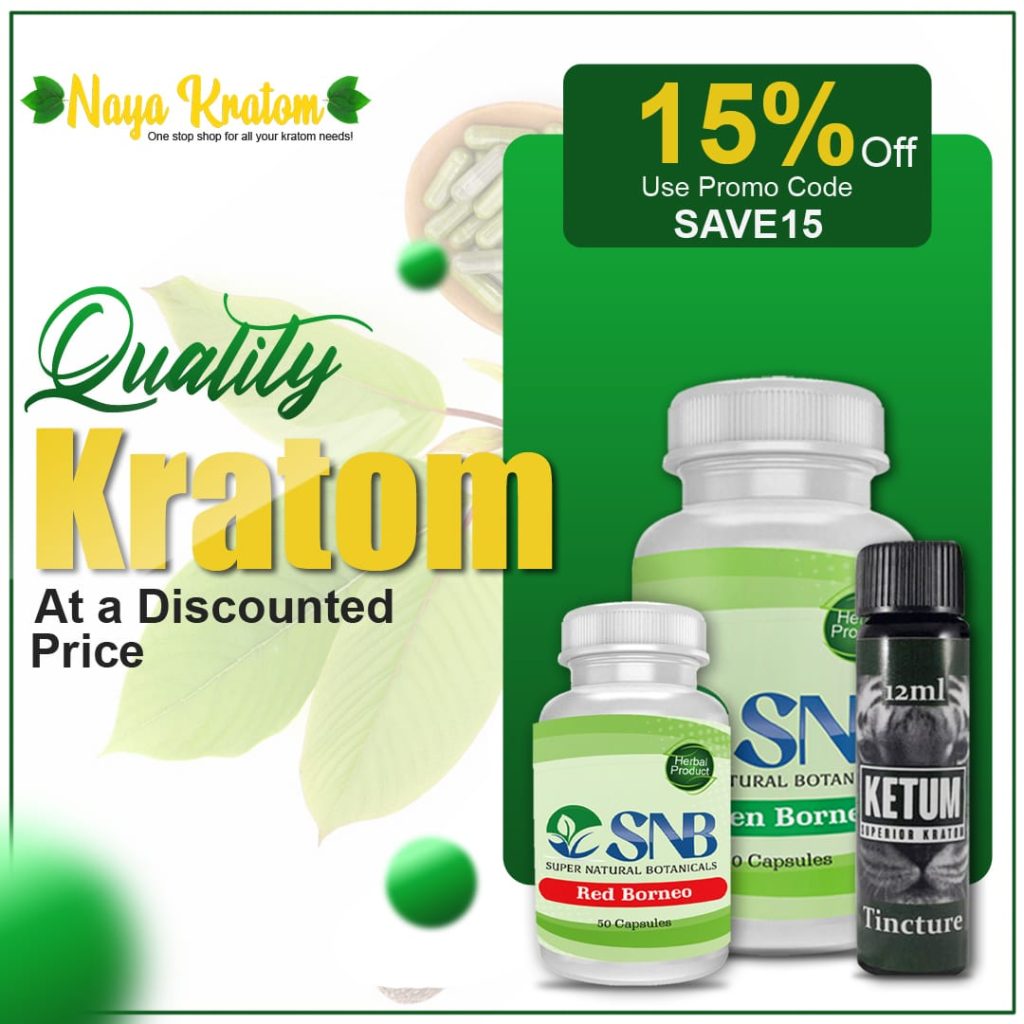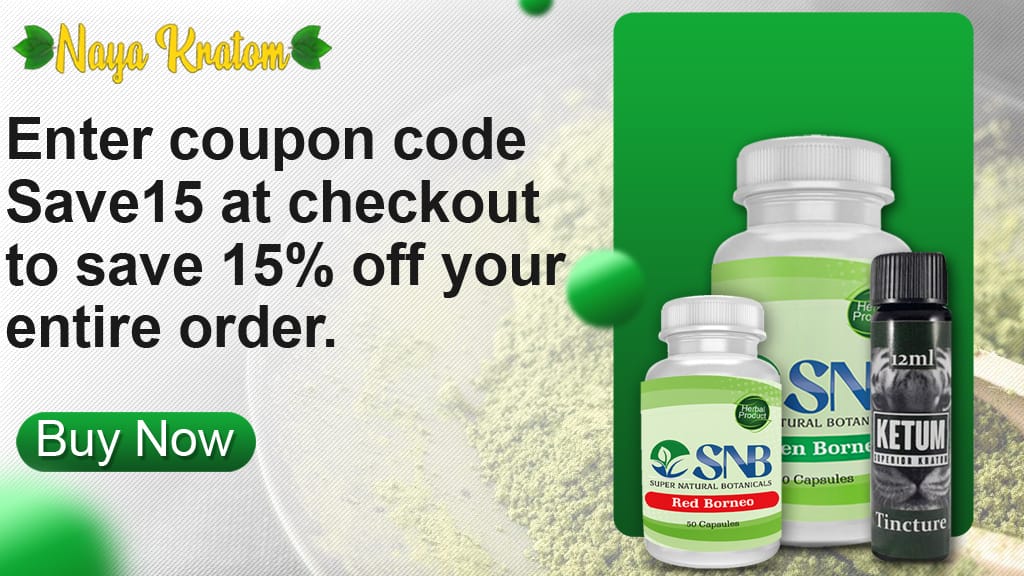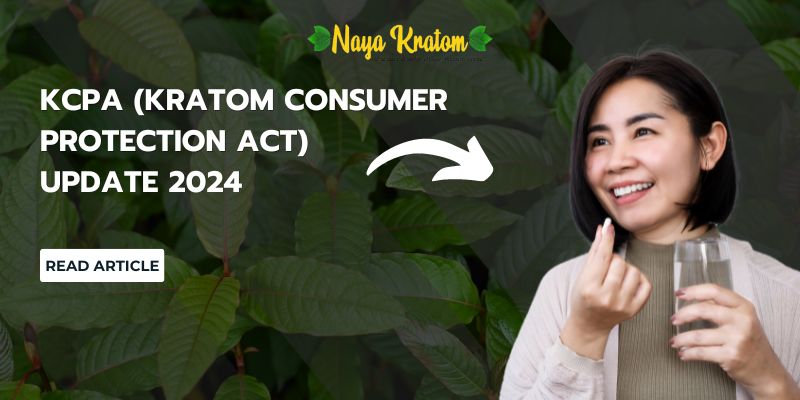Kratom has proved to be the helping hand of many around the world. Due to its therapeutic effects, it has been gaining the attention of people worldwide. Many states are doing legislation to legalize it.
Before kratom was legalized, obtaining high-quality kratom was very difficult. Vendors were selling poor-quality kratom. This all was happening until KCPA was proposed.
The American Kratom Association proposed the KCPA, aka Kratom Consumer Protection Act, to regulate kratom. Since then, you can find many credible online vendors. Moreover, due to these regulating authorities, quality kratom is being produced.
This blog aims to understand what KCPA is and how it helps in regulating kratom.
Is Kratom Legal in The United States of America?
Yes, currently, in the USA, kratom is legal. Kratom is known for its therapeutic effects, like relaxation and help with physical discomfort.
However, because it has psychoactive content and can cause tolerance, some states are apprehensive about it. That is why the FDA never approved it.
However, with the efforts of the American Kratom Association, a bill named KCPA was proposed, which helped in legalizing kratom.
Kratom is not banned nationwide. Instead, every state in the USA has the authority to legalize it if it wants to.

- States Where Kratom Is Legal
States where kratom is legal and may or may not be regulated:
- Alaska
- California
- Delaware
- Hawaii
- Idaho
- Maine
- Maryland
- New Mexico
- Nebraska
- North Dakota
- Ohio
- Missouri
- Mississippi
- North Carolina
- Washington
- Wyoming
- Tennessee
Note: These are the states where kratom is legal; however, KCPA is still in the process of legislation.
- States Where Kratom Is Illegal
Following are the states where kratom is legal and banned:
- Arkansas
- Indiana
- Alabama
- Vermont
- Wisconsin
- Rhode Island
Why Is There a Need to Regulate Kratom?
- Preventing Misuse: Regulation of the kratom can help in avoiding unnecessary bans that can occur due to misuse of the kratom. Regulatory authorities make sure that kratom is not being misused or disturbed improperly by the vendors.
- Ensure High-Quality Production: Adulteration and contamination of kratom were the biggest issues before the regulation. The regulatory authorities keep an eye on the vendors to make sure no harmful substrates are being used in the production of kratom.
- Good Manufacturing Practices: Another major role of the regulatory authorities is to impose good manufacturing practices. For kratom, it is important to have a set of rules so that consumers receive a consistent quality. AKA has imposed a GMP rule to ensure that it is produced in a sanitary environment.
AKA And Its Efforts for Kratom Regulation
American Kratom Association (AKA) is the main regulatory body that advocates for kratom in the USA. It is a nonprofit organization that was established in 2014 when the need to regulate kratom was raised.
The organization works to ensure that kratom remains legal and helps in policy making.
The main principles of this organization are:
- Support the individuals and vendors who sell and consume kratom.
- Educate and correct any misinformation about the kratom.
- Protect the consumer and seller rights.
- To make sure that kratom is properly regulated and produced.
- AKA is the body that proposed the KCPA bill to legalize kratom.
What Is the Kratom Consumer Protection Act?
The Kratom Consumer Protection Act is a bill that helps in protecting the kratom industry. This bill legalized kratom products and protected the rights of the vendors and the users.
The exact date of when the KCPA was proposed is unclear however various legislative documents indicate that it was proposed in 2019.
As the FDA has still not accepted kratom as a therapeutic supplement, the KCPA is what regulates kratom manufacturing. It has a set of rules that every vendor has to follow to become an AKA-approved kratom seller.
KCPA and AKA are the central bodies that hold vendors and manufacturers accountable for malpractice.
- States That Have Passed KCPA
Currently Following are the states that have passed the KCPA bill:
- Texas
- Oklahoma
- Georgia
- Florida
- Virginia
- West Virginia
- Kentucky
- Colorado
- Utah
- Arizona
- Nevada
- Oregon
Why Is KCPA Needed?
- Regulation Of Kratom
Just like the FDA regularizes all food products before allowing them to be distributed, KCPA acts the same way. KCPA is basically responsible for monitoring kratom manufacturing, labeling, distribution, and sales. It monitors all the processes before the kratom hits the market so that a clean and safe product is distributed.
- Ensuring High-Quality Products
Before KCPA, no one regulated kratom, so the product being sold was of low quality and contained harmful additives. KCPA ensures that the vendors are selling premium products that comply with GMP-certified rules.
- Flexible Bill
KCPA is a flexible bill. That is because it allows every state to modify it according to their needs and do whatever legislation suits them. They can tweak the bill according to their needs and then pass it.
Clauses of the Kratom Consumer Protection Act
Following are some of the standard clauses stated in the KCPA bill:
- No sale of kratom products containing more than 2 percent of 7- OH Mitragynine content.
- Labeling and adding the ingredient list on the products and the website is necessary.
- Disclose the amount of Mitragynine content on each product.
- The sale of kratom items that contain synthetic strains and natural compounds is prohibited.
- No sale of kratom products that are mixed with some authorities that are prohibited by the state.
- Prohibition of selling the products that have products that can alter the strength and composition of the kratom in any way that is harmful to the users.
- The sale of kratom products that have contaminated trains in them or any other ingredient that can contaminate is prohibited.
- Any food item that contains kratom strains in it should be disclosed.
- Kratom products of any form should not be sold to teenagers that are under 18 of age.
Is Kratom Legal Outside Of The USA?
Yes, it is legal outside the USA; however, those countries are not big in number. Also, every country has different laws for kratom. In countries like Spain, Netherlands, Panama, Belgium, Austria, etc, kratom is legal.
However, a lot of big countries like Australia, New Zealand, Poland, Malaysia, Romania, Sweden, Singapore, Japan, Denmark, etc have banned kratom.
Why the FDA Does Not Support Kratom?
Although the FDA should be the one responsible for regulating kratom, however, this is not the case right now. That is because the FDA states:
“FDA does not approve the use of kratom products, as there are concerning reports about the use of kratom. FDA is evaluating the scientific information evaluating the chemical content of the kratom, and we continue to warn the users not to use any products that contain kratom or have alkaloid content similar to kratom.”
As the FDA disapproves of this product, it does not perform any duty of overseeing the manufacturing process of kratom. That is why the KCPA kratom bill was proposed.
FDA has tried to propose and impose restrictions on kratom many times but has not been successful due to much resistance.
FDA Supports CBD But Not Kratom Why?
CBD: The main reason the FDA supports CBD is that it is derived from the hemp plant and does not contain THC, which is responsible for creating a Psychoactive effect. Moreover, in 2018, WHO also published a report on CBD, indicating it as a product with a good safety profile. It is clearly stated in law that only CBD with .3% THC content is permitted. Anything above this is prohibited.
Kratom: The reason the FDA does not support kratom is because of its alkaloid profile. Kratom has Mitragynine, which has psychoactive capabilities because it is believed that this alkaloid can cause dependency, which is why kratom is a hot topic for the government and FDA.
Why Kratom Is Not Legal Worldwide?
The reason why kratom is not legal worldwide is because the FDA considers it a psychoactive drug. Also, because there is very little research available to back the therapeutic effects of kratom, the FDA is hesitant to regulate this drug.
Moreover, there are also chances of facing some side effects due to improper kratom use. This factor also damages its reputation. FDA believes that consuming this product for a long time can cause dependency, which is why many states around the world are hesitant about making it legal.
KCPA Kratom Update 2024: What to Expect?
In 2024, many states are expected to do legislation for kratom, and, likely, some of them will even pass the KCPA kratom bill. Following are some states that are expected to take steps for kratom:
- Colorado: The KCPA of Colorado will take effect on July 1 this year. Various changes have been added. For example, kratom containing fentanyl is prohibited, kratom will not be sold to youngsters under 21, etc.
- Connecticut: This is a kratom-legal state, and it is being proposed not to sell kratom to individuals under the age of 21.
- Georgia: Various modifications are expected in KCPA this year, and vendors who don’t follow the rules will be fined $1000.
- Kansas: Kratom legislation is expected this year. The KCPA was passed by the House in 2023 but canceled by the Senate.
- Minnesota: KCPA was passed in 2023, but no further action was taken. Movement related to kratom is expected this year.
- New York: It is a kratom-legal state how the KCPA bill is still pending for legislation. It has already been sent to the Senate.
- Pennsylvania: Kratom is legal in this state. The Kratom Consumer Protection Act was sent to the Senate last year. If it is imposed, a proper regulatory framework can be expected.
Final Thoughts
The Kratom Consumer Protection Act is a good way of protecting the rights of consumers and vendors. Until the FDA legalizes kratom, it is upon the kratom community and KCPA to keep raising their voice.
It is essential to spread awareness about the positive and therapeutic effects of kratom.
Without KCPA, obtaining kratom, even of good quality, will become very difficult. The more the community raises its voice for kratom, the better.



